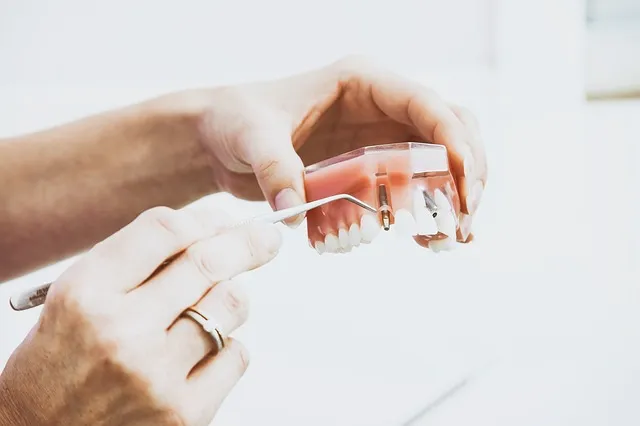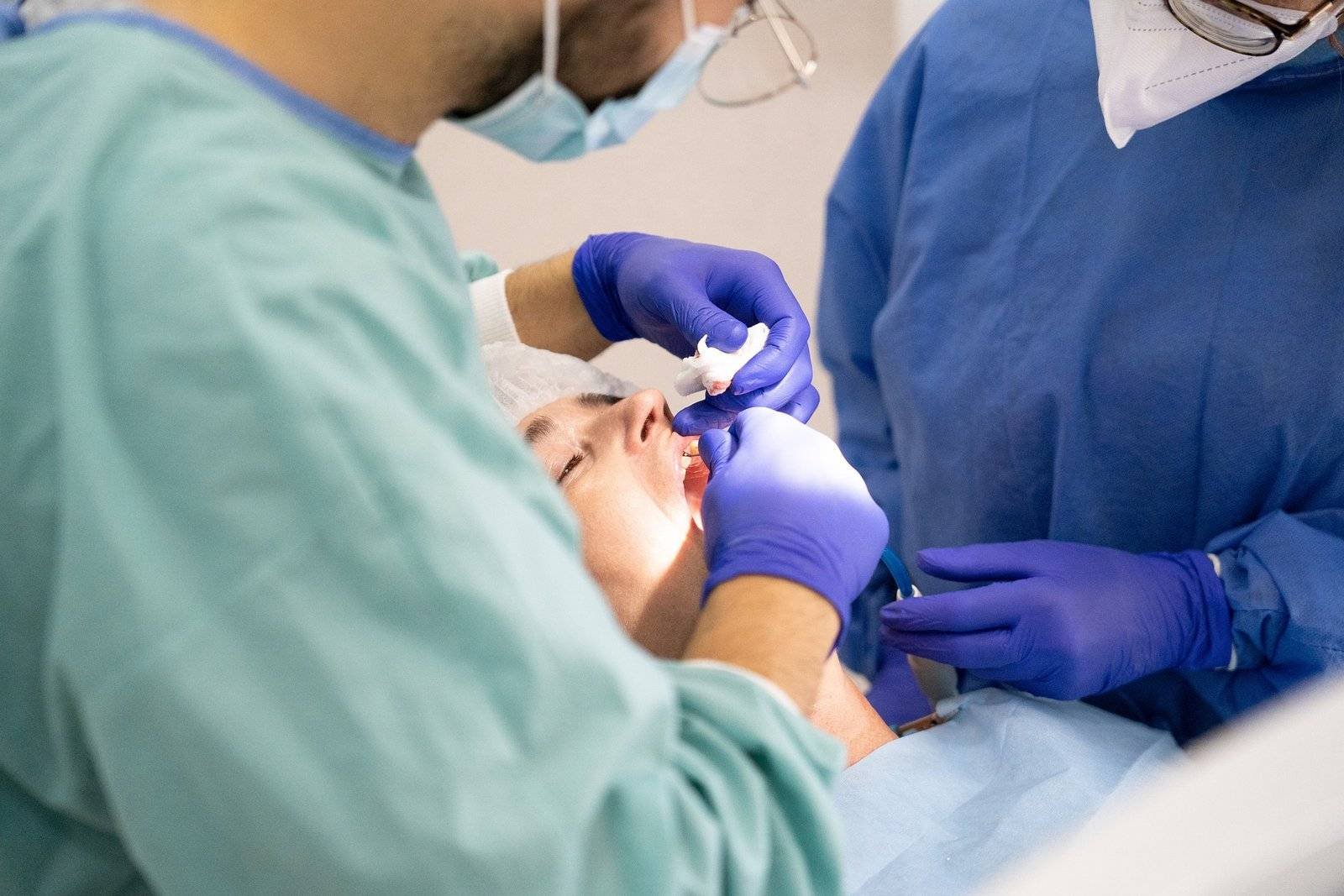
Introduction:
Embarking on the transformative journey of dental implant surgeries holds the promise of restoring smiles and oral function. However, the path is not without its challenges. This comprehensive guide aims to empower dental professionals with a wealth of insights and strategies, ensuring a nuanced approach to navigating and overcoming complications in dental implant surgeries. By delving into various aspects, from preoperative considerations to postoperative care, we aim to provide a holistic resource for practitioners seeking success in this specialized field.
Preoperative Patient Assessment:
The foundation of any successful dental implant surgery lies in a thorough preoperative assessment. Beyond the standard evaluations, delve into the patient’s medical history, lifestyle factors, and expectations. Identify potential risk factors such as smoking, diabetes, or a history of periodontal disease. Utilize advanced imaging techniques, such as cone-beam computed tomography (CBCT), not only to assess bone density but also to visualize anatomical structures and identify potential complications in advance.
Beyond the technical aspects, consider the psychological readiness of the patient. Clear communication regarding the procedure, expected outcomes, and potential complications is essential. Foster an open dialogue, ensuring that patients understand their role in postoperative care and maintenance.
Optimizing Surgical Technique:
A mastery of surgical technique is fundamental for successful dental implant placement. Continuous education and training in the chosen implant system are prerequisites. Beyond the basics, consider incorporating advanced technologies such as computer-guided surgery for enhanced precision.
Minimally invasive approaches not only reduce patient discomfort but also contribute to faster healing. Employ tissue-friendly techniques to minimize trauma and enhance the likelihood of successful osseointegration. Pay meticulous attention to the sequence and depth of drilling, taking into account the specific characteristics of the patient’s bone.
Addressing Peri-Implantitis:
Peri-implantitis, while not common, can be a formidable challenge if left unaddressed. Prevention is key. During preoperative discussions, emphasize the importance of impeccable oral hygiene. Provide patients with detailed postoperative care instructions, including proper implant cleaning techniques and the importance of regular professional cleanings.
Routine follow-up appointments are crucial for monitoring peri-implant tissues. Incorporate regular assessments of probing depths, bleeding on probing, and radiographic evaluations to detect early signs of peri-implantitis. Intervene promptly with non-surgical approaches like laser therapy for early cases, and consider surgical debridement for more advanced situations.
Managing Bone Graft Complications:
Bone grafting complications can pose challenges in achieving the desired implant stability. Stay abreast of the latest advancements in bone grafting materials and techniques. In cases of graft failure, be prepared to adapt and explore alternative grafting materials or procedures.
Considerations for bone grafting extend beyond the surgical phase. Adequate postoperative care and monitoring are essential. Emphasize the importance of patient compliance with prescribed medications, oral hygiene practices, and follow-up appointments to ensure the success of the grafting procedure.
Handling Nerve and Vessel Injury:
While rare, nerve and vessel injuries demand a high level of attention and expertise. Thoroughly understand the anatomical structures in the surgical area through advanced imaging and a comprehensive review of the patient’s records.
Employ meticulous surgical techniques to minimize the risk of injury. In the event of an injury, prompt recognition and appropriate management are critical. Collaborate with specialists if needed, and communicate transparently with the patient about the situation, potential outcomes, and proposed interventions.
Postoperative Monitoring and Maintenance:
Postoperative care is an ongoing commitment that extends far beyond the surgical date. Schedule regular follow-up appointments to assess implant stability, peri-implant tissues, and overall oral health. Develop a personalized maintenance plan based on the patient’s unique needs and risk factors.
Educate patients about the importance of their role in ongoing oral care. Emphasize regular professional cleanings, supportive periodontal therapy, and consistent oral hygiene practices. Implement risk assessment tools to identify potential issues early and adjust the maintenance plan accordingly.
Emerging Technologies and Techniques:
The landscape of dental implantology is dynamic, with emerging technologies and techniques constantly reshaping the field. Stay informed about the latest developments, attend continuing education courses, and engage in professional networks to exchange insights with peers. Consider incorporating technologies like 3D printing, digital planning software, and intraoral scanning into your practice for enhanced precision and efficiency.
Conclusion:
Overcoming complications in dental implant surgeries is a journey that demands continuous learning, adaptability, and a patient-centered approach. By delving into the intricacies of preoperative assessment, surgical technique optimization, peri-implantitis prevention, bone graft management, nerve and vessel injury considerations, and postoperative care, dental professionals can navigate challenges with confidence.
A commitment to staying informed about emerging technologies and techniques, coupled with a personalized and holistic approach to patient care, will not only lead to successful outcomes but also solidify the trust and satisfaction of patients seeking transformative solutions for their smiles. Remember, the art and science of dental implant surgeries are ever-evolving—embrace the journey, and your practice will flourish with each successful implant procedure.
Muskan.ai – An ecosystem powered by Artificial Intelligence for dentistry.
Introducing Muskan.ai, a cutting-edge ecosystem driven by Artificial Intelligence tailored for the field of dentistry. Our innovative AI engine seamlessly integrates with a suite of AI products, empowering dentists to elevate their practice. Through this integration, dentists can optimize their workflow, save valuable time, and concurrently boost their revenue.
With our advanced AI-based radiography analysis tool, dentists can enhance patient treatment acceptance rates and obtain a valuable second opinion promptly. Our AI-powered oral hygiene checkups provide dentists with insights into a patient’s dental status, allowing for efficient time management and enabling the feasibility of tele-dentistry. Patients can conveniently connect with their dentists through a user-friendly mobile app.
Meet DAISY, our AI-powered dentalGPT, designed to interact naturally with patients, addressing their minor queries regarding dental health. In addition to these features, we are at the forefront of championing AI-based Oral Cancer Screenings, offering timely interventions and facilitating recovery without resorting to invasive treatments. Muskan.ai is not just a technological advancement; it’s a transformative force enhancing both dentistry practice and patient care.



